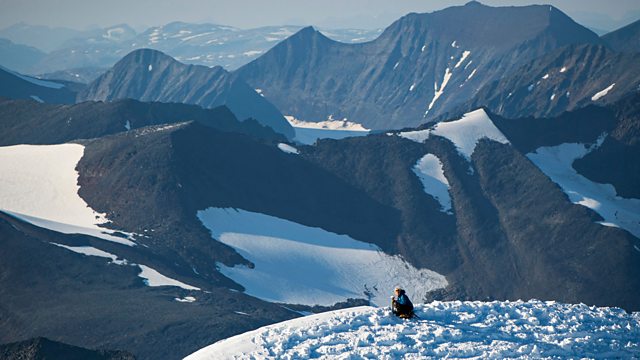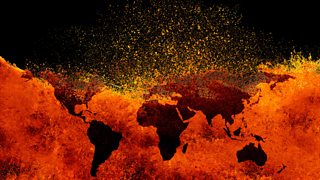Record Arctic temperature of 38C confirmed
Sea ice and snow cover are melting, and the exposure of the 'dark earth' is the main reason for "the boost of the warming".
The highest temperature ever recorded in the Arctic, 38C (100F), has been officially confirmed. The World Meteorological Organization (WMO) on Tuesday verified the record, reported in the Siberian town of Verkhoyansk on 20 June last year. The temperature was 18C higher than the area's average daily maximum for June. Last year's extreme heat in the region contributed to the spread of wildfires, which swept across the forests and peatlands of northern Russia releasing record amounts of carbon.
While relatively common in summer months, high temperatures and strong winds made the fires unusually severe. The high temperatures across Siberia led to significant ice loss and played a major role in 2020 being one of the three warmest years on record, the WMO said.
The WMO Secretary General Petteri Taallas describes the implications of these temperature rises. He points out that 70 percent of sea ice has now melted and that snow cover is melting, and the exposure of the 'dark earth' is the main reason for "the boost of the warming". In addition, wildfires this year in the Russian and Canadian Arctic have led to "record emission of carbon dioxide being released". He goes on to say that the Arctic temperature rises are twice those experienced around the world - so a 2.4 degrees rise will mean a 5 degree rise in the region.
Photo: A researcher takes measurements in Sweden's Arctic north, August 2021, where warming is taking place considerably faster than the global average Credit: Getty Images
Duration:
This clip is from
Featured in...
![]()
Climate change: How it is affecting lives and the fight for change—±«Óătv World Service special collections
The effects of climate change are destroying lives, environments and livelihoods
More clips from Newshour
-
![]()
New moth species from Guyana discovered in a house in Wales
Duration: 03:29
-
![]()
Stranded in Belfast, they fell in love
Duration: 03:21
-
![]()
Children's eyesight appears to be getting worse
Duration: 02:21
-
![]()
World's oldest known cheese discovered
Duration: 03:30







